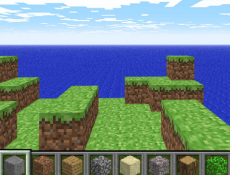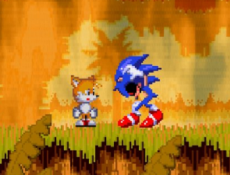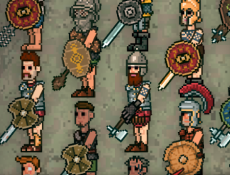Fish Eat Fish is an arcade survival game where the player controls a small fish in an ocean filled with predators and prey. The main objective is to grow larger by eating fish that are smaller while avoiding those that are bigger and dangerous. As the fish grows, the player gains access to more opportunities but also faces greater risks, since larger predators become more aggressive. The balance between cautious movement and opportunistic feeding defines the core experience, turning survival into a constant challenge.


Fish Eat Fish
Advertisement

Advertisement
Fish Eat Fish is an arcade survival game where the player controls a small fish in an ocean filled with predators and prey. The main objective is to grow larger by eating fish that are smaller while avoiding those that are bigger and dangerous. As the fish grows, the player gains access to more opportunities but also faces greater risks, since larger predators become more aggressive. The balance between cautious movement and opportunistic feeding defines the core experience, turning survival into a constant challenge.
Gameplay and mechanics
In Fish Eat Fish, the player starts as one of the smallest creatures in the ocean and must carefully choose targets to eat. Every successful meal increases size, allowing the fish to take on larger opponents. However, a single mistake—such as swimming too close to a predator—results in defeat. The mechanics focus on movement, timing, and awareness of the environment. Since the ocean is always populated with both threats and opportunities, the player must continuously adapt to the changing conditions.
Features and growth system
The progression system is simple but effective, rewarding consistent survival with visible growth. At first, the player can only eat tiny fish, but as size increases, new prey becomes available. With this growth, the sense of risk also expands, since larger predators remain a constant danger. This creates a natural cycle of challenge where progress depends on smart choices and patience. Each session unfolds differently depending on the player’s decisions and reactions.
Key features include:
- Growth system based on eating smaller fish
- Constant threat from larger predators
- Simple movement mechanics with increasing difficulty
- Dynamic ocean environment with changing opportunities
- Risk-and-reward gameplay loop focused on survival
Design and structure
The design of Fish Eat Fish emphasizes clarity, making it easy to distinguish between predators, prey, and neutral creatures. The underwater setting is presented in a straightforward style that highlights movement and size differences rather than unnecessary detail. The pacing is gradual, beginning with manageable challenges before escalating into more intense encounters as the player’s fish grows. This structured design creates a sense of steady progression, even though the ultimate goal is endless survival.
Longevity and appeal
The appeal of Fish Eat Fish lies in its simplicity combined with its natural replay value. Since every run begins with a small fish, players are encouraged to improve their awareness and reaction time in order to survive longer. The unpredictable mix of predators and prey ensures that no two sessions play out exactly the same. This unpredictability, combined with the straightforward survival concept, makes Fish Eat Fish a game that remains engaging across repeated playthroughs. Its focus on growth, risk, and survival gives it lasting appeal as a classic arcade-style experience.




















